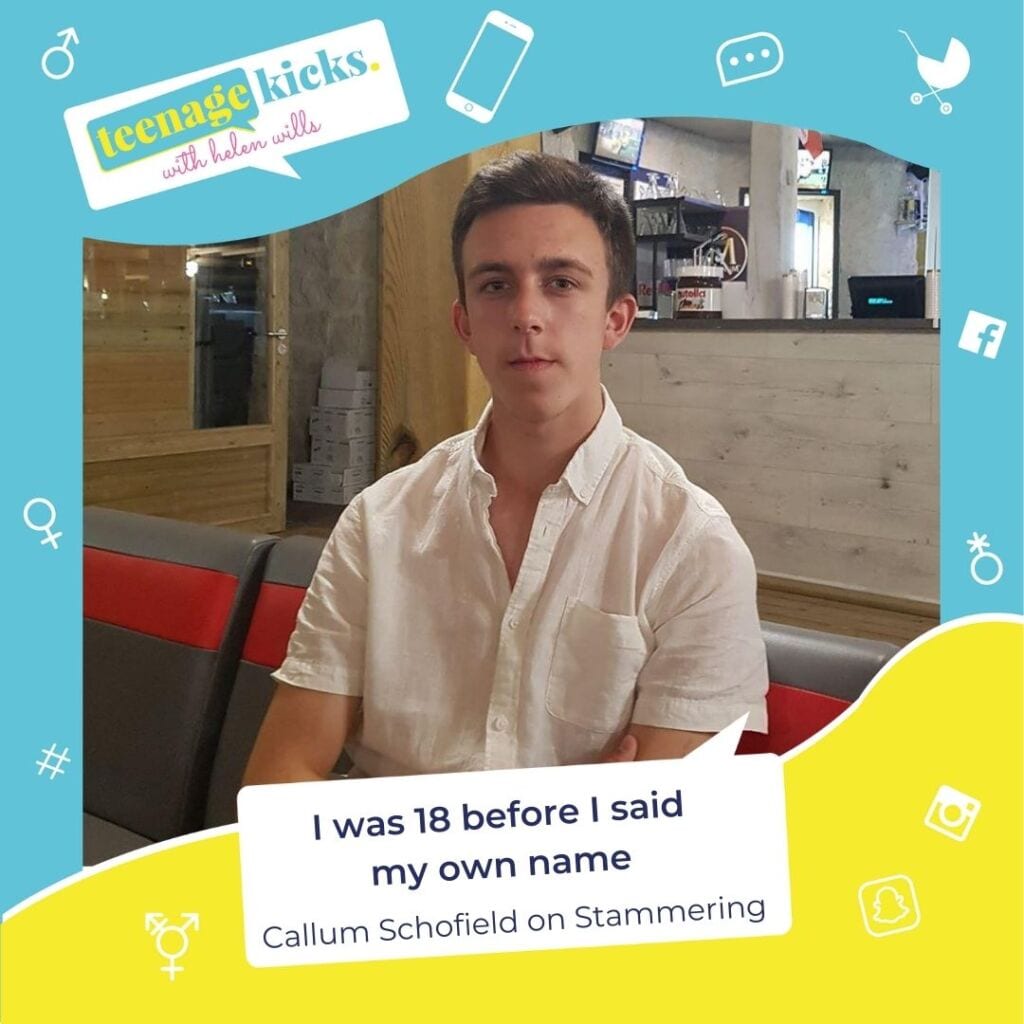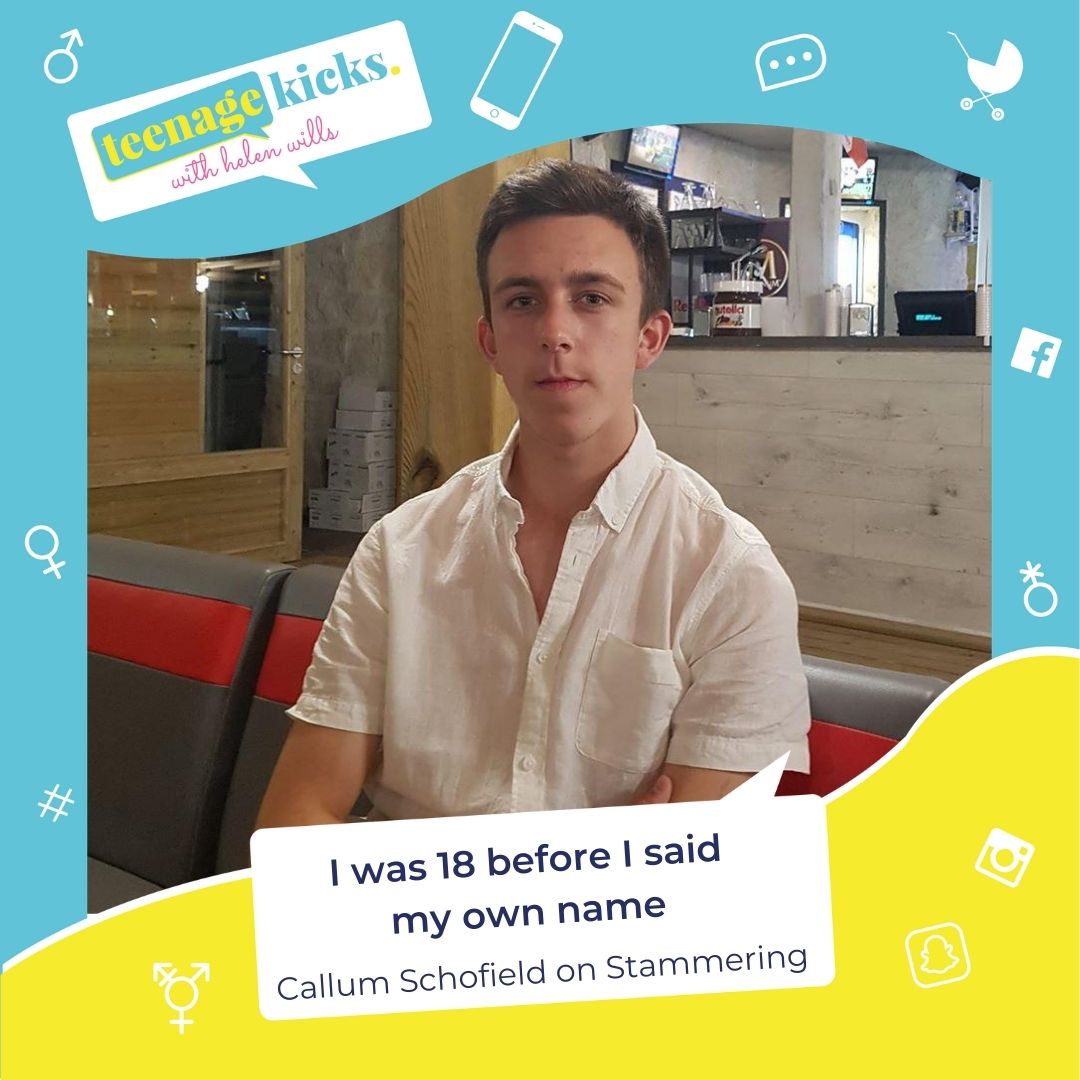How Callum overcame teenage stammering
At 18 I said my own name for the first time without stammering
Callum Schofield said his own name for the first time at the age of 18 without stuttering. He spent his childhood and teenage years without a voice, and he says his teenage stammering had a massive impact on his mental health.
Callum is now a podcast host, motivational speaker and stammering activist raising awareness of the needs of children (and adults) with a stammer. He also advocates for male mental health on his blog and YouTube channel.
As a parent it was hard to listen to Callum describing how the boys in his school wouldn’t let him leave the toilets until he’d said his own name, something they knew he couldn’t do. Being a teenager is hard enough without being bullied for something beyond your control.
And knowing that stammering held him back from aiming high during his teenage years was hard to think about. But at just 19 now, he was so impressive to talk to. Have a listen to the podcast to hear him talk about his progress and his plans – I guarantee you’ll be as excited for Callum’s future as I was.

Where to get help with a stammer
The NHS website says that stammering is relatively common in children, but it usually resolves by adulthood. It’s not clear what causes stuttering in adults, but Callum says it’s usually a neurological condition, and nothing at all to do with nerves or anxiety – a common misconception.
In our chat, Callum says that stammering treatment is very personal, and that no two people will have the same experience. These are the organisations he found help from:
- The Starfish Project – for help with the physical aspects of stammering
- Stop Holding Back – works on improving the mindset of someone with a stammer to help them achieve more in life
Teenagers especially might like this straight-talking article on stuttering myths, and parents might find useful signposts at Stamma.org.
Advice for parents on stammering
“Trust the timing”
This is honestly one of the loveliest pieces of advice I’ve had on the podcast. Callum says “Trust the timing.” When his mother tried to help him as a younger child, it just didn’t work. It would have been easy to despair, but she persisted in supporting her son, and when the time felt right for Callum, he got the help he needed.
I know this advice to work well for smaller parenting dilemmas too, especially with teenagers.
Where to connect with Callum
Where to listen:
You can find the episode in your usual podcast app, or if you prefer, you can listen online below, or through the podcast page.
View on Zencastr
Subscribe to the Teenage Kicks podcast
Thank you so much for listening! Subscribe now to the Teenage Kicks podcast to hear about the new series when it begins. I’ll be talking to some fabulous guests about difficult things that happened to them as teenagers – including losing a parent, being hospitalised with mental health problems, and battling an eating disorder – and how they overcame things to move on with their lives.
I’d love to hear from you if you have any suggestions for future topics on the Teenage Kicks podcast. Contact me here, or you can find me on Instagram and Twitter at @iamhelenwills. I appreciate every message, and love to hear from my listeners.
I’d love it if you’d rate and review the podcast on iTunes too – it would really help other people to find it.
For information on your data privacy please visit Zencastr. Please note that I am not a medical expert, and nothing in this blog or in the podcast should be taken as medical advice.
Join me in the Teenage Kicks Facebook group!
If you’re a parent of teens it can be difficult to know where to go for advice, to vent, or just to talk. So I’ve made the Teenage Kicks Facebook group, for all parents of teenagers to chat in a safe space. It’s a private group and everyone in there will be a parent of teenagers.

